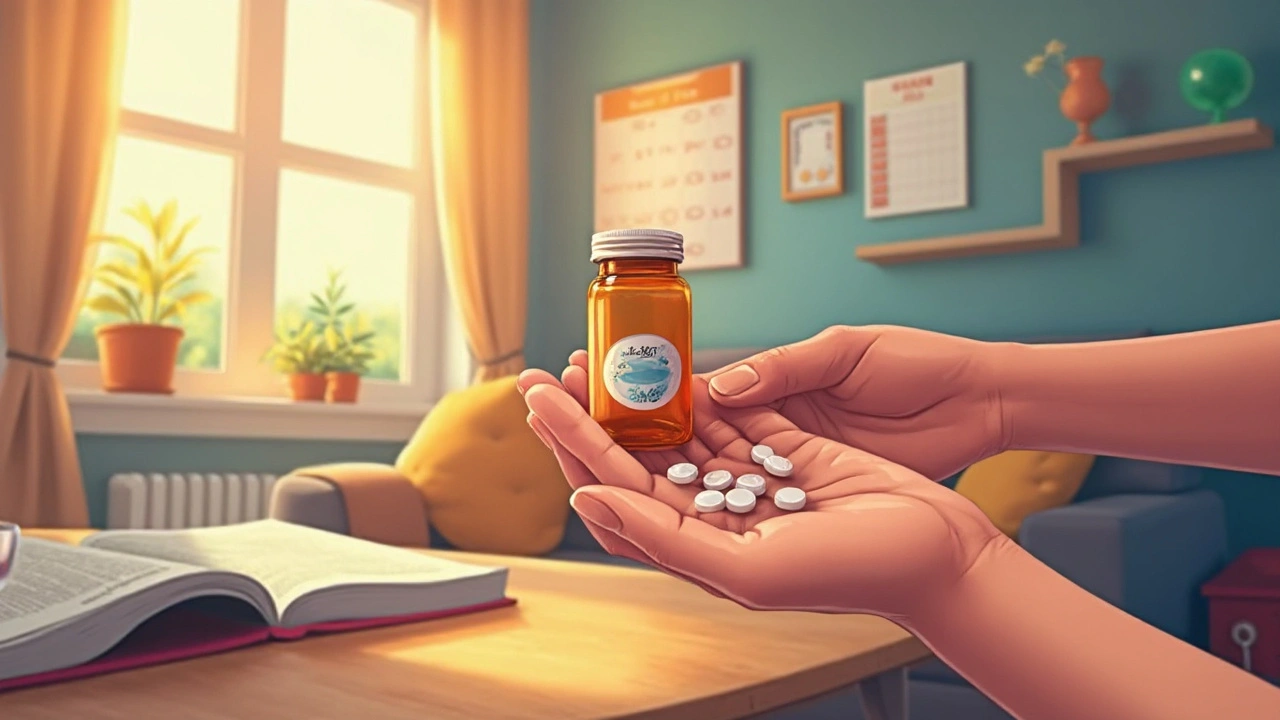
If you’ve been prescribed a pill for cold sores, shingles, or chickenpox, chances are it’s acyclovir. It’s an antiviral that stops the virus from multiplying, which helps your body heal faster and reduces pain.
Acyclovir targets the herpes family of viruses – the same bugs that cause oral herpes (cold sores), genital herpes, shingles (herpes zoster) and chickenpox (varicella). Once you swallow the tablet, the drug gets converted inside infected cells into a form that messes with the virus’s DNA. This stops the virus from copying itself, so outbreaks are milder and don’t last as long.
Doctors typically prescribe it for three main reasons:
It’s not a cure – the virus stays in your body – but the medication can keep flare‑ups under control.
Dosage depends on what you’re treating and your kidney function. For a typical adult with a herpes outbreak, the common schedule is 200 mg five times a day for ten days. For shingles, doctors often start with 800 mg five times daily for seven to ten days. Kids get a weight‑based dose, and people with kidney problems need lower amounts.
Take the tablets with a full glass of water. You don’t have to eat, but if the pill upsets your stomach, a light snack can help. Try to keep the timing consistent – set a reminder on your phone so you don’t miss a dose.
Side effects are usually mild. Expect a bit of nausea, headache, or tiredness. Rarely, you might see a rash or kidney trouble, especially if you take too much. If you notice a severe rash, swelling, or trouble breathing, call a doctor right away.
Before you start, tell your doctor about any other meds you’re on. Acyclovir can interact with certain kidney drugs like probenecid, and a few HIV medicines may need dose tweaks.
When it comes to buying, acyclovir tablets are prescription‑only in most countries. That means a legit pharmacy will ask for a doctor’s note. If you’re looking online, stick to certified online pharmacies that require a prescription and show clear contact info. Avoid sites that sell the drug without asking for a prescription – they might be selling fake or unsafe products.
Keep the medication in a cool, dry place and check the expiration date. If a tablet looks discolored or crumbles, don’t use it.
Finally, know when to call your doctor. If your sores don’t start improving after a few days, if they get worse, or if you develop a fever, you may need a different treatment plan.
Bottom line: acyclovir tablets are a reliable tool for managing herpes‑related infections when taken correctly. Follow the dosing schedule, watch for side effects, and buy from a reputable source. With the right approach, you’ll cut down the pain and get back to your daily routine faster.